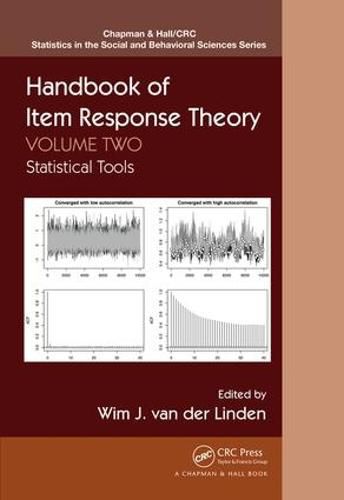Readings Newsletter
Become a Readings Member to make your shopping experience even easier.
Sign in or sign up for free!
You’re not far away from qualifying for FREE standard shipping within Australia
You’ve qualified for FREE standard shipping within Australia
The cart is loading…






Drawing on the work of internationally acclaimed experts in the field, Handbook of Item Response Theory, Volume Two: Statistical Tools presents classical and modern statistical tools used in item response theory (IRT). While IRT heavily depends on the use of statistical tools for handling its models and applications, systematic introductions and reviews that emphasize their relevance to IRT are hardly found in the statistical literature. This second volume in a three-volume set fills this void.
Volume Two covers common probability distributions, the issue of models with both intentional and nuisance parameters, the use of information criteria, methods for dealing with missing data, and model identification issues. It also addresses recent developments in parameter estimation and model fit and comparison, such as Bayesian approaches, specifically Markov chain Monte Carlo (MCMC) methods.
$9.00 standard shipping within Australia
FREE standard shipping within Australia for orders over $100.00
Express & International shipping calculated at checkout
Drawing on the work of internationally acclaimed experts in the field, Handbook of Item Response Theory, Volume Two: Statistical Tools presents classical and modern statistical tools used in item response theory (IRT). While IRT heavily depends on the use of statistical tools for handling its models and applications, systematic introductions and reviews that emphasize their relevance to IRT are hardly found in the statistical literature. This second volume in a three-volume set fills this void.
Volume Two covers common probability distributions, the issue of models with both intentional and nuisance parameters, the use of information criteria, methods for dealing with missing data, and model identification issues. It also addresses recent developments in parameter estimation and model fit and comparison, such as Bayesian approaches, specifically Markov chain Monte Carlo (MCMC) methods.